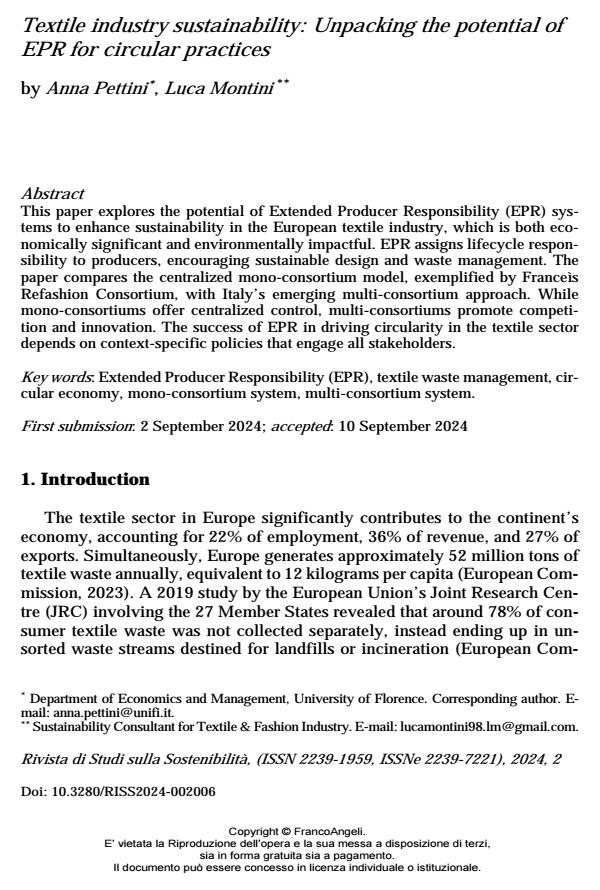Textile industry sustainability: Unpacking the potential of EPR for circular practices
Titolo Rivista RIVISTA DI STUDI SULLA SOSTENIBILITA'
Autori/Curatori Anna Pettini, Luca Montini
Anno di pubblicazione 2024 Fascicolo 2024/2
Lingua Inglese Numero pagine 16 P. 87-102 Dimensione file 130 KB
DOI 10.3280/RISS2024-002006
Il DOI è il codice a barre della proprietà intellettuale: per saperne di più
clicca qui
Qui sotto puoi vedere in anteprima la prima pagina di questo articolo.
Se questo articolo ti interessa, lo puoi acquistare (e scaricare in formato pdf) seguendo le facili indicazioni per acquistare il download credit. Acquista Download Credits per scaricare questo Articolo in formato PDF

FrancoAngeli è membro della Publishers International Linking Association, Inc (PILA), associazione indipendente e non profit per facilitare (attraverso i servizi tecnologici implementati da CrossRef.org) l’accesso degli studiosi ai contenuti digitali nelle pubblicazioni professionali e scientifiche.
This paper explores the potential of Extended Producer Responsibility (EPR) sys-tems to enhance sustainability in the European textile industry, which is both eco-nomically significant and environmentally impactful. EPR assigns lifecycle re-sponsibility to producers, encouraging sustainable design and waste management. The paper compares the centralized mono-consortium model, exemplified by Franceìs Refashion Consortium, with Italy’s emerging multi-consortium approach. While mono-consortiums offer centralized control, multi-consortiums promote competition and innovation. The success of EPR in driving circularity in the textile sector depends on context-specific policies that engage all stakeholders.
Parole chiave:Extended Producer Responsibility (EPR), textile waste management, circular economy, mono-consortium system, multi-consortium system.
Anna Pettini, Luca Montini, Textile industry sustainability: Unpacking the potential of EPR for circular practices in "RIVISTA DI STUDI SULLA SOSTENIBILITA'" 2/2024, pp 87-102, DOI: 10.3280/RISS2024-002006